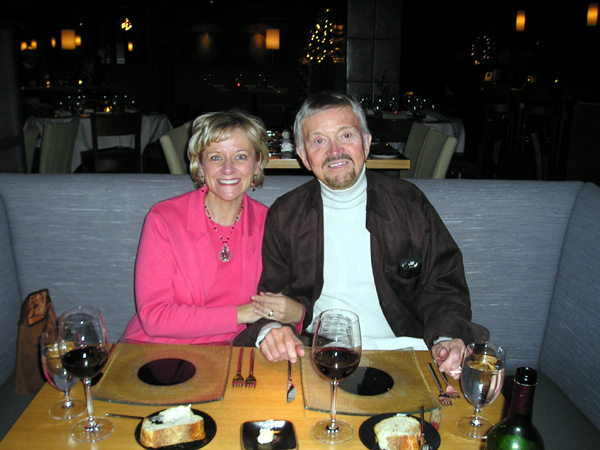In 1991, Dr. Nelson was awarded the Acuff Chair of Excellence in the Creative Arts, the first musician to hold the chair. In 1993, his Passacaglia (Homage on B-A-C-H) made history by winning all three major wind band compositions – the National Association Prize, the American Bandmasters Association Ostwald Prize, and the Sudler International Prize. He was awarded the Medal of Honor of the John Philip Sousa Foundation in Washington, DC in 1994. In 2006, he was awarded an honorary doctorate from Oklahoma City University [photo at lectern farther down this page].
Dr. Nelson has received numerous commissions, including those from the National Symphony Orchestra, Rochester Philharmonic, the USAF Band and Chorus, Rhode Island Philharmonic, Aspen Music Festival, Brevard Music Center, Musashino Wind Ensemble, and countless colleges and universities. He has also received grants and awards from The Rockefeller Foundation, the Howard Foundation, ASCAP, and several from the National Endowment for the Arts.
Dr. Nelson has appeared as guest composer/conductor at a large number of colleges and universities, including Illinois, Yale, North Texas State, Western Michigan, Sam Houston, Lawrence, Dartmouth, Southern Maine, CalTech, MIT, and Princeton.
Ron Nelson currently resides with his wife Michele [pictured together below in 2005] in Scottsdale, Arizona.

*He should not be confused
with Ronald A. Nelson, an arranger/composer of choral music.
-- Biography and
photographs from the composer's official website
 RN
RN
 RN
RN RN
RN RN
RN